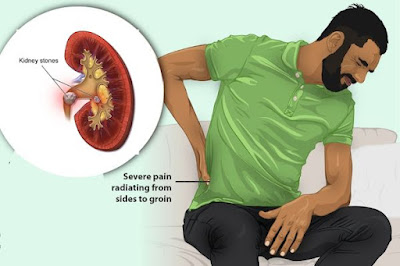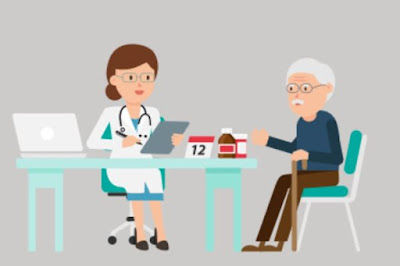 |
| Vitamin D Stomach Upset |
We should fulfill the vitamin requirements of the body by following natural food habits. According to the Harvard T.H. Chan School of Public Health, Vitamin D3 is a type of vitamin that our bodies naturally produce.
Vitamin is a very necessary element for the body. But excess vitamins do not allow the body to be healthy. We all know more or less that vitamin D is very necessary for the body. It improves immune function, fights various infections and diseases, and facilitates the normal growth and development of bones and teeth. It also plays an important role in reducing anxiety and boosting overall immunity.
A lack of vitamin D causes rickets in children and increases the risk of osteoporosis in adults. If there is a severe deficiency of vitamin D in children, there is a possibility of convulsions and breathing problems.
So in this situation, you may be confused about vitamin D, but no worry, stay to the end, every confusion will be solved.
First of all, excess intake of anything has side effects, vitamin D just into them. Even excess intake of vitamin D is also responsible for toxicity and upsetting your stomach.
In this post, first, we have to try to cover vitamin D toxicity, then we talk about its dose, and then we have to discuss how Vitamin D upset your stomach.
One important thing, the excess intake of vitamin D not just upsets the stomach, but also can be a cause of a lot of sicknesses.
What kind of problems excess vitamin D can actually cause?
1. Cause of Hypercalcemia.
 |
| Hypercalcemia |
Excess vitamin D help regulate the absorption of Phosphorus and calcium in the body. Basically, vitamin D helps absorb calcium from food.
Hypercalcemia is the most significant side effect of taking too much vitamin D. In hypercalcemia, the presence of excess calcium in the patient's blood is observed.
2. Increases Calcium Level.
Various studies have shown that excessive intake of vitamin D increases calcium levels in the blood, leading to frequent urination. Decreased appetite, various side effects such as nausea or vomiting, and excessive thirst are a problem.
3. Sudden Weight Loss.
Excessive vitamin D intake can cause sudden weight loss, excessive fatigue, and weakness.
4. Muscle Stiffness and Lose Bone Density.
D vitamin plays an important role in muscle and bone health. However, excess vitamin D levels are responsible for muscle stiffness and loss of bone density.
Because high levels of vitamin D can damage bone density. Therefore, we should consume vitamin D and calcium in doctor-prescribed doses for optimal bone health.
5. Cause of Fatigue.
Excessive vitamin D causes fatigue, also iron and protein can not be properly distributed in the bones and muscles. So, they can not be properly nourished.
6. Reduce Vitamin K Level.
Excess vitamin D reduces vitamin K levels. Vitamin K takes calcium from the blood and stores it in the bones. Even if excess calcium enters the body, it remains in your blood until it is absorbed by the bones.
 |
| Kidney Stones |
7. Affect Kidney.
High levels of vitamin D in the blood can affect the kidneys. So taking excess vitamin D can cause kidney problems.
Excess calcium in the blood leads to kidney stones. As a result, apart from impaired kidney function, problems such as frequent urination or kidney stones may occur.
8. Cause Various Digestive
Excess vitamin D and calcium levels in the body can cause various digestive problems, such as stomach pain, constipation, or diarrhea. Because 80% of the body's immune system depends on the digestive system, which is disrupted due to the presence of excess vitamin D in the body.
9. Cause of Difficulty in Defecation.
Due to excess vitamin D, there is difficulty in defecation, and also increases the risk of constipation, abdominal pain, and loss of appetite. It also creates dehydration and nutrient deficiency in the body.
Recommended Doses of Vitamin D.
To avoid getting too much Vitamin D, there have a stick ODS- recommended daily doses depending on age level. Even according to the National Institutes of Health the daily intake of Vitamin D requirement is:
- Up 0 to 1-year-old: 10 mcg (400 IU)\
- Up 1 to 70 years old: 15 mcg (600 IU)
- Up to 71 years and older: 20 mcg (800 IU)
Even adults should not exceed an upper limit of 100 mg or 4000 IU of vitamin D per day per the ODS.
If you follow the recommended dosage, your stomach can occur even be upset of taken vitamin D. According to the Cleveland Clinic, if you take a D supplement on an empty stomach or pop vitamins before exercise can put you at greater risk for experiencing side effects like nausea.
Vitamin D Stomach Upset and Solution
Hope after reading the above part of this post, you understand why vitamin D can be a cause of feeling sick. So, follow the recommended dose guidelines.
After following the dose guidelines, if your stomach is upset. Then how to prevent them for a long time, in the next part we have shared some tips that help to prevent Vitamin D stomach upset:
1. Don't take supplements before exercise
According to the Cleveland Clinic, if you work out right after downing D supplements can stir up your stomach content which can lead to excess stomach acid production that can exacerbate conditions like heartburn or reflux. So, take supplements after this type of activity.
 |
| Vitamin D Rich Foods |
2. Reduce Dose
If a daily portion of vitamin D regularly gives you an upset stomach, then according to Cleveland Clinic lower your dose until you find an amount that doesn't cause nausea.
3. Take Supplements With Food
Cleveland Clinic says taking any supplement with food will helps your body to absorb the vitamin better thus reducing your chances of an upset stomach. So, the best way to take pills is with at least a medium size snack.
4. Eat Vitamin D-rich Foods
If you are wondering that is there a form of vitamin D that won't upset your stomach, Then the answer will be vitamin D-rich foods.
 |
| Take the Doctors Suggestion |
5. Take the Doctor's Suggestion.
According to the Mayo Clinic, too much vitamin D overnight can be overwhelming for our bodies. So accordingly avoid mega-dosing vitamin D which means taking a supplement that exceeds 100% of the nutrient's daily value.
So, talk to a verified doctor, because in the case of a Vitamin D stomach upset, doctors can give you the best solution, and can tell you which supplement and what amount you need to take at a time.

Post a Comment